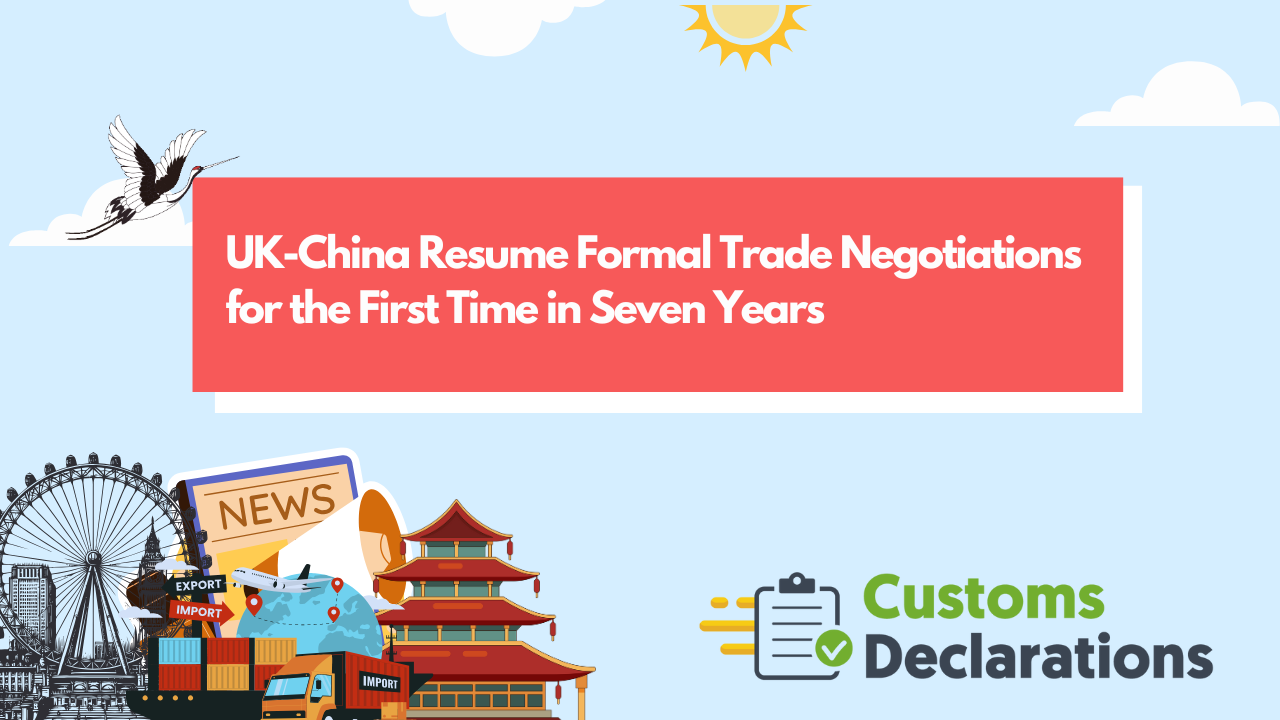Peter Kyle, the UK’s new Business and Trade Secretary, pictured in London earlier this month. Kyle traveled to Beijing this week to resume high-level trade negotiations with China after a seven-year pause. The British government has relaunched trade talks with China in a bid to revitalize a relationship that had been largely on hold since 2018. Peter Kyle – recently promoted to the cabinet post – is co-chairing meetings in Beijing with Chinese Commerce Minister Wang Wentao at the first UK-China JETCO summit in seven years.The talks aim to remove trade barriers and secure greater Chinese market access for UK exporters, with an ambitious goal of “more than £1 billion” in market access gains over the next five years. British officials say this push for export deals across key sectors is part of a broader economic strategy to deliver growth and “put money into people’s pockets” domestically.
Kyle’s trip to Beijing comes after a period of frosty relations and limited engagement. High-level UK-China economic dialogues were suspended in 2019 by the former government in protest at Beijing’s crackdown on Hong Kong’s pro-democracy movement, with the pandemic further stalling contacts. Now, under Prime Minister Keir Starmer’s administration, ministers have adopted what they call a “pragmatic, careful and confident” approach to China. “These are the hallmarks of grown-up government when it comes to dealing with China – cooperating where we can and challenging where we must,” the Business and Trade Department said, emphasizing that Britain will never compromise on national security in pursuit of commerce. Accordingly, officials confirmed that Kyle will raise sensitive issues during the talks – including human rights concerns and “level playing field” problems such as unfair trade practices that undermine British firms. The intent is to engage Beijing on expanding trade while also “creating space to raise concerns constructively where needed,” as Kyle put it.
As part of this week’s engagement, the JETCO meetings are expected to focus on breaking down specific barriers in sectors where UK businesses see big opportunities. The automotive industry, agriculture and agri-food products, and professional services are among the priority areas in which Britain hopes to ease access or regulatory hurdles. For example, improved terms for UK carmakers – who employ around 133,000 workers at home – could significantly boost exports to China’s huge auto market. Similarly, resolving sanitary rules that currently hinder British agricultural goods (like certain meat and animal products) would open up China’s vast consumer base to more UK food exports. The technology and finance sectors are also on the agenda; earlier this year, China agreed to allow UK financial qualifications to be recognized there, and ongoing dialogues aim to extend cooperation in areas like digital trade and green technology.
British businesses have welcomed the reboot of formal economic talks. Around 200 UK companies are attending a trade expo in Xiamen, China, this week as a side event to the official meetings. The China-Britain Business Council noted that after nearly a decade of “very little traction” in bilateral trade relations, the revival of structured dialogues like JETCO is “much needed” to spur trade and investment flows. New figures underscore what’s at stake: UK trade officials say government support helped facilitate nearly £2 billion in export “wins” in China in the last financial year alone, with sectors such as creative industries, retail, and healthcare among the top performers. By rebuilding economic bridges now, the UK hopes to capture more of China’s growth – its economy is forecast to account for 23% of global growth between 2023 and 2050 – while guarding against risks.
Peter Kyle’s diplomatic itinerary also reflects a careful balance between cooperation and caution. Earlier in the week, he stopped in Washington, D.C., to meet U.S. officials and tech companies before heading to Beijing. That visit was partly preparation for an upcoming state visit by U.S. President Donald Trump to the UK, underlining how Britain is managing ties with both superpowers. Notably, the UK has shown willingness to act decisively when Chinese investments are seen to threaten national interests: in April, the government took control of British Steel to prevent its collapse under Chinese ownershipr. Against that backdrop, Kyle stressed that “serious and strategic engagement with the world’s foremost economic players” like China can deliver tangible benefits for British workers and firms. “More discussions and direct engagement with China will ensure trade between us can flourish, strengthen our national security, and create space to raise concerns,” he said, framing the renewed talks as a way to boost prosperity while upholding UK values and security.


